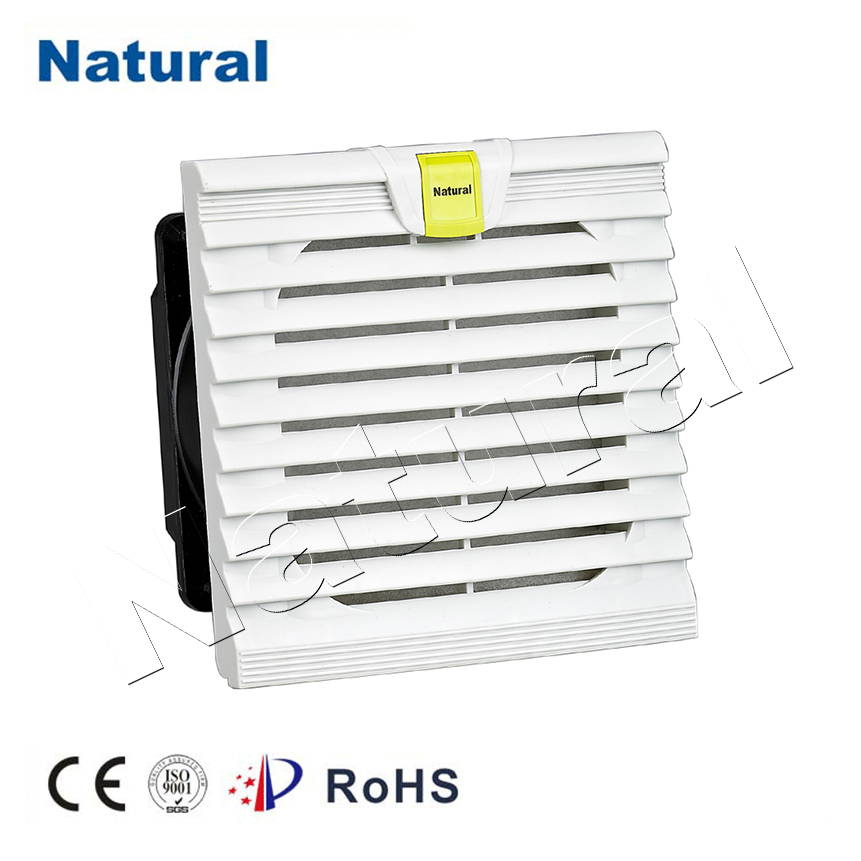In today’s fast-paced industrial landscape, maintaining optimal air quality is paramount for ensuring a safe and productive working environment. One essential component that plays a crucial role in achieving this goal is the industrial fan filter. These unassuming devices are the unsung heroes that enhance air quality while simultaneously improving the efficiency of industrial processes.

Industrial fan filters are designed to remove airborne contaminants, such as dust, debris, and particles, from the air circulating within industrial spaces. They are commonly used in manufacturing facilities, warehouses, data centers, and various other settings where air quality is of utmost importance. The benefits they offer are manifold and encompass both environmental and operational aspects. One of the primary advantages of industrial fan filters is the improved air quality they provide. Airborne particles and pollutants can have detrimental effects on both equipment and personnel. Dust and debris can accumulate on machinery and components, leading to increased wear and tear, reduced lifespan, and potentially costly downtime for maintenance. Moreover, employees working in an environment with poor air quality may experience health issues ranging from respiratory problems to allergies. By effectively capturing these particles, fan filters help prevent equipment damage and safeguard the health and well-being of workers. In addition to maintaining a clean environment, industrial fan filters contribute to enhanced operational efficiency. The removal of contaminants from the air prevents clogging of machinery and equipment, allowing them to function optimally. Unobstructed airflow ensures that industrial processes, such as cooling and ventilation, operate efficiently, thereby reducing energy consumption and lowering operational costs. This not only improves the overall productivity of the facility but also aligns with sustainability initiatives by minimizing energy waste. The versatility of industrial fan filters is another noteworthy aspect. These filters come in various types and configurations to cater to different industrial needs. High-efficiency particulate air (HEPA) filters are capable of trapping particles as small as 0.3 microns with an efficiency of 99.97%, making them ideal for industries requiring stringent air quality standards, such as electronics manufacturing and pharmaceuticals. Meanwhile, electrostatic filters use an electric charge to attract and capture particles, offering an effective solution for spaces with moderate contamination levels. Maintenance of industrial fan filters is relatively straightforward, further adding to their appeal. Regular cleaning or replacement of filters, depending on the type and usage, ensures their continued effectiveness. Modern fan filter units often come equipped with filter replacement indicators, streamlining the maintenance process and reducing the risk of oversight. In conclusion, industrial fan filters are essential components that significantly contribute to both air quality improvement and operational efficiency within industrial settings. By effectively capturing airborne contaminants, these devices protect equipment, extend its lifespan, and promote the well-being of workers. Simultaneously, they optimize industrial processes, minimize energy consumption, and align with sustainability goals. Their versatility and relatively simple maintenance make them indispensable assets for any facility that values clean air and streamlined operations. As industries continue to evolve, the role of industrial fan filters in creating a healthier and more efficient workspace remains as crucial as ever.